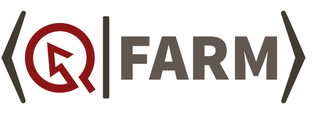
Main content start
Jensen Huang Professor of Global Leadership, Professor of Electrical Engineering and, by courtesy, of Applied Physics
Jelena Vuckovic
Jensen Huang Professor of Global Leadership, Professor of Electrical Engineering and, by courtesy, of Applied Physics
Jelena Vuckovic is the Jensen Huang Professor in Global Leadership, a Professor of Electrical Engineering and by courtesy of Applied Physics at Stanford, where she leads the Nanoscale and Quantum Photonics Lab in the Ginzton Laboratory. She joined the Stanford Faculty in 2003, upon receiving her PhD degree from the California Institute of Technology (Caltech) in 2002. At Stanford, she also served as the Fortinet Founders Chair of the Electrical Engineering Department, and was the inaugural director of QFARM, the Stanford-SLAC Quantum Initiative.
Vuckovic is a member of the National Academy of Sciences and an External Scientific Member of the Max Planck Institute for Quantum Optics. Her awards include the Vannevar Bush Faculty Fellowship, Geoffrey Frew Fellowship from the Australian Academy of Sciences, the IET A. F. Harvey Engineering Research Prize, Distinguished Scholarship of the Max Planck Institute for Quantum Optics in Munich, Hans Fischer Senior Fellowship from the Institute for Advanced Studies at TU Munich, Marko V. Jaric Award for outstanding achievements in physics, Humboldt Prize, Presidential Early Career Award for Scientists and Engineers, DARPA Young Faculty Award, and the Office of Naval Research Young Investigator Award. She was the Mildred Dresselhaus Lecturer at MIT, and the James Gordon Memorial Speaker at Optica. She is a Fellow of the American Physical Society (APS), of the Optica, and of the Institute of Electronics and Electrical Engineers (IEEE).
Vuckovic was a member of the scientific advisory board of the Max Planck Institute for Quantum Optics (MPQ) in Munich, Germany, of the National Science Foundation (NSF) - Engineering Directorate, of the Ferdinand Braun Institute in Berlin, Germany, and of SystemX at Stanford. She is the co-founder of SPINS Photonics, and has also served as an advisor of semiconductor technology companies. Currently, she is an Associate Editor of ACS Photonics.
Jelena Vuckovic’s research interests are broadly in the areas of nanophotonics, quantum and nonlinear optics. Her lab develops semiconductor-based photonic chip-scale systems with goals to probe new regimes of light-matter interaction, as well as to enable platforms for future classical and quantum information processing technologies. She also works on transforming conventional photonics with the concept of inverse design, where optimal photonic devices are designed from scratch using computer algorithms with little to no human input. Her current projects include quantum and nonlinear optics, cavity QED, and quantum information processing with color centers in diamond and in silicon carbide, heterogeneously integrated chip-scale photonic systems, and on-chip laser driven particle accelerators.
Vuckovic is a member of the National Academy of Sciences and an External Scientific Member of the Max Planck Institute for Quantum Optics. Her awards include the Vannevar Bush Faculty Fellowship, Geoffrey Frew Fellowship from the Australian Academy of Sciences, the IET A. F. Harvey Engineering Research Prize, Distinguished Scholarship of the Max Planck Institute for Quantum Optics in Munich, Hans Fischer Senior Fellowship from the Institute for Advanced Studies at TU Munich, Marko V. Jaric Award for outstanding achievements in physics, Humboldt Prize, Presidential Early Career Award for Scientists and Engineers, DARPA Young Faculty Award, and the Office of Naval Research Young Investigator Award. She was the Mildred Dresselhaus Lecturer at MIT, and the James Gordon Memorial Speaker at Optica. She is a Fellow of the American Physical Society (APS), of the Optica, and of the Institute of Electronics and Electrical Engineers (IEEE).
Vuckovic was a member of the scientific advisory board of the Max Planck Institute for Quantum Optics (MPQ) in Munich, Germany, of the National Science Foundation (NSF) - Engineering Directorate, of the Ferdinand Braun Institute in Berlin, Germany, and of SystemX at Stanford. She is the co-founder of SPINS Photonics, and has also served as an advisor of semiconductor technology companies. Currently, she is an Associate Editor of ACS Photonics.
Jelena Vuckovic’s research interests are broadly in the areas of nanophotonics, quantum and nonlinear optics. Her lab develops semiconductor-based photonic chip-scale systems with goals to probe new regimes of light-matter interaction, as well as to enable platforms for future classical and quantum information processing technologies. She also works on transforming conventional photonics with the concept of inverse design, where optimal photonic devices are designed from scratch using computer algorithms with little to no human input. Her current projects include quantum and nonlinear optics, cavity QED, and quantum information processing with color centers in diamond and in silicon carbide, heterogeneously integrated chip-scale photonic systems, and on-chip laser driven particle accelerators.
Education
PhD, California Institute of Technology (Caltech) (2002)
